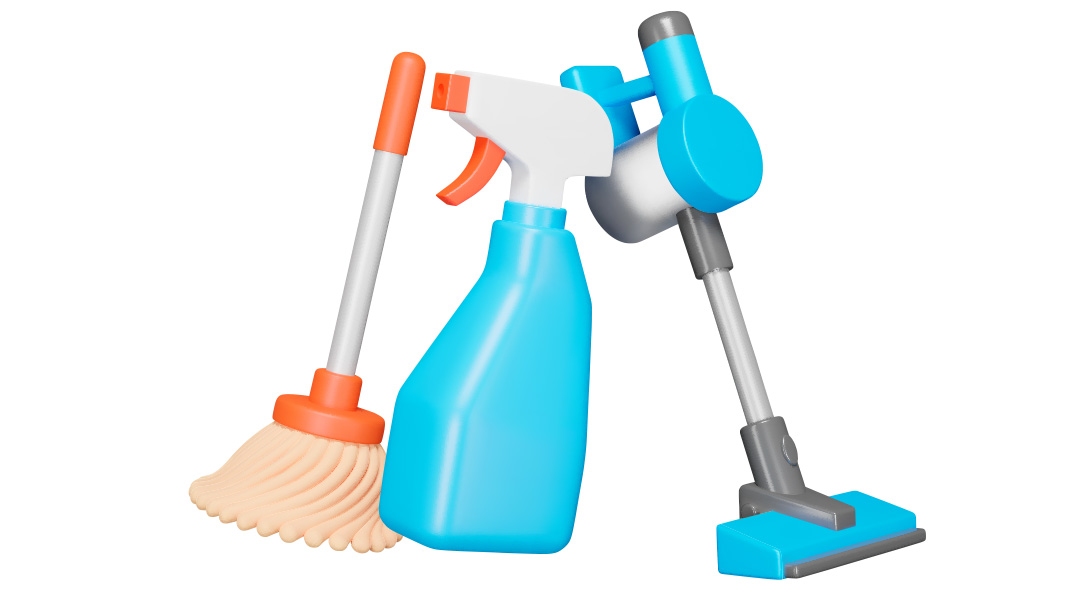Take a Seat

Before we knew it, we were the Felds with the Chair Gemach

I
am wrist deep in my first batch of sourdough when the phone buzzes.
Life’s dilemmas. I nudge the phone by scooting the bowl along the counter, and squint at the screen. Sari Berman. Poor Sari. Sharing a two-family home with my juvenile delinquents is probably not easy, but she never complains. Until she does.
Hi Ahuva, happy sourdough Tuesday.
Gotta love neighbors who share a wall with you and can smell when you’re baking. And of course, when you’re burning things.
I wait for the next message.
Can you just remind people not to knock on my door for the gemach? Should I put up a sign?
The chair gemach started by accident. We rented out our apartment for Pesach two years ago when we’d gone to Detroit, and the cute young couple we sublet to, the ones with only one baby, so everything was going to be sparkling clean and no one would color on the couch, had decided to play big host on campus and invited around ten bochurim every meal. The scuff marks on my floors were quite the welcome sight after ten hours in the car. But aside from the fact that they’d treated our apartment like a hotel conference room, they had also purchased ten plastic chairs and then proceeded to charge us for them.
Oh, the joys of tenants.
So as we suddenly became the proud owners of ten plastic chairs that we quite honestly didn’t need, we did what any good Jew would do: We started a gemach.
It was easy, honestly. We put the chairs in the shed, locked it up, and told anyone who called not to knock on our door. Our only rule was you return the chairs, relock the shed, and keep the gemach confined to its space. Binyamin didn’t want strangers knocking on our door, he didn’t want the kids opening for strangers and calling me down from feeding the baby or anything else, and he didn’t want to bother the Bermans.
“Our mitzvah can’t be at their expense,” he insisted.
Then the Greenbaums moved to Monsey and donated seven more chairs, and the shul gave us the old chairs when it redid the simchah hall, and before we knew it, we were the Felds with the Chair Gemach.
Which was fine, better than the Felds with the Noisiest Kids in Town.
Still, no matter how many chairs were stuffed in that shed, we kept to the same rule. Stack your chairs when you’re done, relock the shed, and keep the gemach confined. And please, please, don’t knock on any of the front doors.
I finish my dough, Sari’s text on my mind. (Because you know I’d leave a sourdough in the middle like I’d leave a baby in the bath alone: Never.) Then I wash my hands before texting back.
Sorry about that — dough hands! Yes, I’ll remind them, and a sign can’t hurt, right?
Thanks for understanding.
And I daven she just continues to understand.
I read her sign as I carry my sourdoughs into the car for delivery the next afternoon.
Please don’t knock on the front doors. Please keep all gemach activity to the shed only. Thank you!
That was nice of her, to include my door in her sign. Hopefully it will help.
I go straight from deliveries to do a stock up at Kosher Kart; Binyamin doesn’t have his shiur on Tuesdays, so he can be home early to greet the kids and warm up supper. Once a week, I have a few hours to myself, and yes, they are necessary. And possibly cheaper than therapy. Except when I engage in retail therapy. Then I’m not so sure.
I don’t get home until close to eight, tired, drained, but content.
The kitchen window is glowing brightly, little shadows flitting past the blinds. It all looks so idyllic, and even though I know chaos and commotion and probably some calamities await me inside that golden haze, in a way, it really is perfect.
I am startled out of my very deep thoughts, hashtag I need more sleep, by two dark figures who suddenly appear at the end of my driveway. I bite back a startled yelp and peer through the dusk.
“Can I help you?” I say, shifting the bags from where they’re cutting my wrist to an equally uncomfortable spot on my arms.
The dark figures become two teen boys. They stand there, looking pretty menacing in the surrounding gloom, and I resist the urge to take a step back.
“We need chairs,” says the taller one, chin raised defiantly.
“Great. There’s the shed, combination AC2018.” I hope he doesn’t notice that I’m bristling. Something about these boys is rubbing me the wrong way.
They head off to the back without saying thank you.
“You’re welcome,” I call after them.
Okay, it was petty, but I’m tired.
The counters are sticky, which is impressive, because dinner was chicken and rice. If it was French toast or something, I’d understand, but what exactly is sticky about chicken?
I scrub in circles, eyes closing. I should be heading to bed, it’s five to midnight, but I just want to wash the dishes really quickly. And stain-treat some of Binyamin’s shirts. And iron Chani’s uniform skirt….
A knock on the door makes me drop the sponge in terror.
Well, I’m wide awake now.
I grab a pizza cutter from the magnetic strip above the counter and peer through the peephole. It’s the two boys again.
Are they kidding?
I throw open the door, making no move to hide the pizza cutter.
That’ll make headlines: “Boys have peyos chopped off by frum mom.” Okay, apparently exhaustion makes me violent. I’ll just throw that realization into my mental vault to psychoanalyze later.
“It’s midnight,” I say.
They look at me, zero shame. “We need more chairs. We’re waiters for a bris tomorrow.”
I actually look around, in case their sanity is hiding somewhere. “It’s midnight,” I repeat. “Whatever is in the shed is what we have. And you’re not supposed to knock on the doors. Did you not read the signs?”
The taller boy nudges the shorter one, and they grin insolently.
I clutch the pizza cutter tighter. “What’s your names? Should I call your parents? What’s your mothers’ names?”
That’s when Sari’s door opens and she steps out, shivering. She’d obviously been sleeping.
“Ahuva? Everything okay here?”
The boys glare at us both and turn to go, muttering. And then the taller boy turns around, looks directly at me, and spits on the ground.
I blink in shock as they disappear into the darkness. Did that actually just happen?
It didn’t, right?
Sari stares at me, eyes huge.
I didn’t just get spat at because my chair gemach ran out of chairs, did I?
Shaking, I whisper good night, slam my door, drop the pizza cutter back on the counter and run upstairs to wake Binyamin.
It’s almost an hour later before he manages to calm me down, and he strides off to Shacharis the next morning, promising to “take care of it.”
Sari texts me to see how I am, then tells me that she saw the boys waitering at the Snow bris.
I give this information to Binyamin; detective that he is, he tracks down their names and address.
That night, we get in the car and drive silently one neighborhood over, to the Greenberg residence.
Oh, it’s bad. Mr. Greenberg welcomes us in, dark circles blooming under each eye.
The kitchen looks like a hurricane had a wedding with a tornado: The cabinets hanging open, every inch of counter space covered in random paraphernalia, and six overflowing garbage bags lined against the wall like a small army of squat, black, foul-smelling soldiers.
I try to shake my head at Binyamin, but he’s a man and definitely not picking up my imperceptible gestures.
Instead, he shares the story from start to finish.
Mr. Greenberg looks like he is going to cry.
“I’m so sorry,” he repeats, over and over.
I want to apologize to him for adding to his burden. I also really want to roll up my sleeves and clean the entire house from top to bottom.
But all I do is nod.
“His mother used to call the police on him,” Mr. Greenberg offers weakly as he shows us to the door. “Maybe, when you said you were going to call his mother, it triggered him… not that it’s an excuse, I’m just trying to explain. They’re good boys… it’s just been a lot since she left….”
Binyamin and I drive home in silence. We obviously did the absolute wrong thing storming over to their house. I should have known it wasn’t a regular situation. Why’d I get so upset?
But then again, those boys. Even if I triggered the daylights out of them — they can’t disturb the peace! Especially so late at night. They woke up Sari and scared me half to death.
Still, what help was it in the end? All I did was burden an already-overwhelmed single father.
Later, as I watch them return the chairs to the shed, I can’t help thinking: What should I have done differently? What could I have done differently?
All I can think is: What should I have done differently?
I think it is totally understandable why Ahuva and Binyamin wanted to march right off to the parents and report on their sons. However, it was impulsive and not thought-out. Obviously, if these boys were old enough to be waiters, and their parents had not yet managed to instill basic decency in them, they were not likely to suddenly succeed. In addition, seeing as their behavior was so far from that of regular frum teenagers, it was screaming out that there was a special situation. It would have been wiser and more productive to first do research about them and their family, maybe by asking the Snows, who used them for the simchah, and then to evaluate further. These boys definitely need intervention. But the important questions are who and how.
I don’t think Ahuva did anything wrong. She was disrespected and disturbed and rightfully scared as well. Maybe she’s being hard on herself for not having been dan l’chaf zechus, but even so, I don’t think she did anything wrong. On the other side, as much as the single father is dealing with a lot, a whole community can’t just turn a blind eye, allowing more misbehavior like this to take place.
I don’t think Ahuva did anything wrong. She had clear rules for the gemach so it wouldn’t infringe on others, and in doing this chesed, was slapped in the face. When the teenager crossed the line of appropriateness, she was allowed to take action to protect herself and others from going through this.
Ahuva is human, and her reaction was normal. Tiptoeing on eggshells in case he came from dysfunction (which, incidentally, he did), would not have been normal.
It was a sad situation, but Ahuva needed to look out for her family and neighbor.
Would you like to contribute to this column as a Second Guesser? Email familyfirst@mishpacha.com with Second Guessing in the subject line.
(Originally featured in Family First, Issue 865)
Oops! We could not locate your form.







